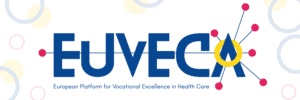The European healthcare industry faces significant challenges in maintaining its sustainability. To tackle this issue, EUVECA has identified six major megatrends that will be central areas of focus on developing learning and training initiatives for healthcare professionals and medical students. The overarching goal is to equip current and future healthcare professionals with the essential skills and resources needed to actively contribute to the establishment of a sustainable healthcare sector. Embracing these six megatrends will enable professionals to have a meaningful impact in their respective roles.
Now, let’s delve deeper into these six megatrends and the essential 21st-century skills that need to be acquired. EUVECA has identified the following popular megatrends in health and social care: the ageing population, the growing importance of chronic disease and co-morbidity among patients, the information technology revolution and the general digitalisation of society, personalised medicine, the modern health consumer, and the climate challenge.
The Baseline Report marked EUVECA’s initial tangible achievement, it was developed under the guidance of the University of Ljubljana during the first year of the project. It is grounded in scientific research and incorporates input from stakeholders. This report provides valuable insights into the perspectives of healthcare students and professionals regarding their preparedness to address emerging megatrends and the alignment of their competencies with nine essential 21st-century skills. These skills include communication, collaboration, critical thinking and problem-solving, social and cultural skills, leadership, green skills, creativity and innovation, ICT literacy, and media literacy.
In the following sections, we will examine these 21st-century skills in greater detail, highlighting their significance and explaining why they are crucial for health and social workers.
Effective communication is essential in the health and social care sector. It involves exchanging information, ideas, and emotions with patients, colleagues, and others. Good communication includes active listening, empathy, clear language, and adapting to different needs. It improves patient outcomes, understanding, decision-making, and satisfaction.
Collaboration is crucial in the health and social care sector, involving effective teamwork and cooperation toward shared goals. It entails working with other healthcare professionals, patients, families, and stakeholders to provide optimal care, solve problems, and address individual needs. Collaboration leverages expertise, promotes patient-centred care and addresses broader health issues.
Critical thinking and problem-solving are essential in the 21st century. They involve analysing information, evaluating situations, and finding solutions to complex problems. Critical thinking requires objectivity and well-reasoned conclusions, while problem-solving involves creativity and analytical thinking. These skills are vital in a rapidly changing world that demands innovative solutions for complex challenges.
Social and cultural skills in healthcare encompass effective interaction with individuals from diverse backgrounds. This involves understanding and respecting the values, beliefs, and practices of different cultures and communities. Healthcare professionals with these skills navigate complex social and ethical issues, such as end-of-life care and access to healthcare services. They handle these matters sensitively, prioritising patient safety and care quality.
Leadership skills in health care involve effectively leading teams, driving innovation, and improving care quality. Strong leaders understand the healthcare system, inspire professionals, set goals, and foster collaboration and innovation.
Green skills encompass the knowledge, abilities, and attitudes necessary to work in sustainability and tackle 21st-century environmental challenges. They involve skills related to renewable energy, climate change, and waste management. As awareness of the need for a sustainable future increases, these skills become more valuable in different industries, including health and social care. Within this sector, green skills play a crucial role in ensuring the sustainability of work materials.
Creativity and innovation are vital in health and social care. They enable professionals to find innovative solutions, improve outcomes, and tackle healthcare challenges. Creativity involves thinking outside the box and developing new approaches, technologies, and models of care. Innovation translates creative ideas into practical solutions, collaborating with others and implementing improvements for better care and patient outcomes.
ICT literacy in healthcare involves using technology to access, manage, and communicate health information. This includes electronic health records, telehealth tools, and compliance with privacy regulations. These skills improve patient outcomes, promote health equity, and enhance communication and collaboration in health care.
Media literacy in health and social care involve critically evaluating and using various forms of media to access, interpret, and share health information. It requires navigating sources, identifying accuracy, and understanding potential biases.
The analysis revealed that training is required for all the above-mentioned skills. Especially ICT literacy, critical thinking and problem-solving, and leadership stand out as the skills with the highest training needs for health care professionals. The combination of these skills is vital for the success of health and social care workers in their professional endeavours as well as in their everyday lives.
Don’t forget to check out the challenges awaiting the healthcare sector in the 21-st century and read more about the ageing population, for example. We will also discuss the necessary preparations required to equip them for the upcoming trends. Stay tuned for more!


